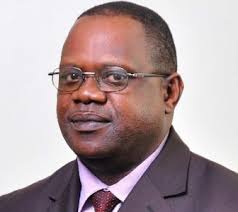Zimbabwe has serious problems that require civic engagement and meaningful contribution of the academia to the governance sphere which has been waning over the years, Public Policy and Research Institute of Zimbabwe (PPRIZ) director, Dr Gorden Moyo has said.
PPRIZ is a local think tank.
Moyo was speaking Tuesday at a conference organised by civic society organisations in Bulawayo which ran under the theme: “Citizen agency, accountability and democratic governance in Zimbabwe.”
“Currently in Zimbabwe, we have many issues,” decried Moyo.
“We have a population of about 14 to 15 million where eight million of them are in abject poverty. We are in a country where we have US$19 billion in terms of debt overhang. We have serious problems! We need to engage as civil society, as academics, as churches and media to challenge the state. I am not saying to oppose. Opposition is for the political players.”
Challenging the state on issues affecting Zimbabweans, Moyo said, would bring about accountability.
“It is all about democracy,” he said.
“Zimbabwe can easily become the Singapore or Switzerland of Africa because of the resources that we have.”
Moyo said it was regrettable that academics had long taken a back seat from the governance sphere.
“We want to re-intellectualise our governance sphere,” he said.
“In Zimbabwe, we have seen the de-intellectualisation of the public sphere. Some of you would remember the 1980s, early, early 1990s when the public sphere in Zimbabwe was vibrant. And because the public sphere was vibrant because of the academics, civil society became vibrant and gained courage because the academics were participating in the governance sphere.”
He further said: “You cannot miss the name Kempton Makamure, you can’t miss the name, John Makumbe. You can’t miss the name Masipula Sithole. These were academic giants, not in university walls but in the public sphere engaging and raising questions to the extent that the government had to be running around. It was on its toes because academics raised issues.”
Moyo said the likes of Jonathan Moyo, Welshman Ncube, Arthur Mutambara and many others raised “real issues” during their times as academics.
“Over the years we have seen the retreat of academics,” he decried.
“We are hiding gentlemen and ladies. We are not there in the public sphere, we are not raising the bar. If we are not there in the public sphere, we are not raising the bar. We are not churning out knowledge and ideas to civil society, public policymakers, and our political leadership.”
He added: “This is what we want to do. That is why if we don’t do this when we go out there to these politicians and policymakers we are all fooled. They will tell us propaganda and as civil society, we can’t challenge them.”
Academics drawn from different universities in the country who presented papers at the conference said the politicisation of academic institutions was a stumbling block to their contribution to the governance sphere.”

